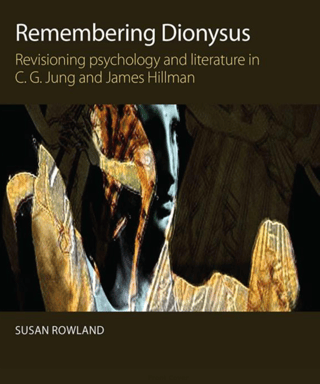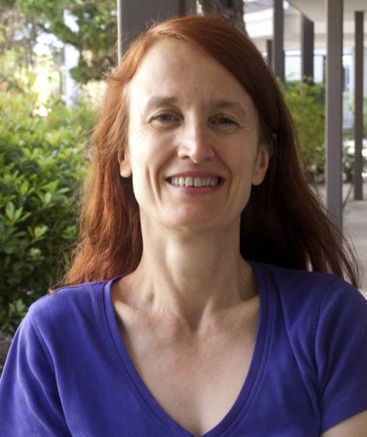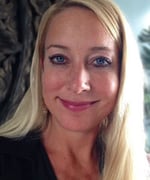A presentation by Susan Rowland, Response at the Radical Edge: Depth Psychology for the 21st Century Summary article by Bonnie Bright, Ph.D.
 Changing society requires changing our ideas about education, specifically about disciplines, began Susan Rowland in her stimulating talk on Dionysus and the power of transdisciplinarity. The Greek god Dionysus, perhaps best known as the god of grape harvest, winemaking and wine, of ritual madness, fertility, theatre and religious ecstasy, doesn’t attempt to divide things up, but rather mixes them up instead.
Changing society requires changing our ideas about education, specifically about disciplines, began Susan Rowland in her stimulating talk on Dionysus and the power of transdisciplinarity. The Greek god Dionysus, perhaps best known as the god of grape harvest, winemaking and wine, of ritual madness, fertility, theatre and religious ecstasy, doesn’t attempt to divide things up, but rather mixes them up instead.
Dionysus has a drum, which covered a lot of the artistic practice of the time of the ancient Greeks, Rowland relates. At that time, when Dionysus presided over the Athenian dramas, going to the theater was not a leisure activity, but a major civic action, which involved politics and religion, as well as the arts.
Ginette Paris, whose work has influenced Rowland greatly in her own thinking, states that Dionysus is a god of the collective, not of individuals. In early myth, Dionysus was very much associated with Titans, those who were pushed aside by the Olympians for a more archetypal style of being. Titanism may be where we evolved from since the ancient Greeks, Rowland acknowledges, but it may also be where we get to again if things get really bad in our culture. Titanism can be indicative of an industrialized, almost brainwashed population—a kind of blanking out of the creativity of the psyche.
In fact, in mythology, Dionysus was torn apart by Titans. He experienced dismemberment and was ultimately put back together again, so he is also a god of dismemberment. Those who do not respect Dionysus are doomed to be torn apart by him, Rowland points out. Rowland makes some interesting archetypal parallels to the political situation and the most recent presidential election in the U.S. It includes an imbalance and an “inability to do Dionysus collectively,” resulting in shadow aspect that that is dismembering institutions.
Disciplinarity and the Art of Knowing
At a time when the arts and science were not really separate in the way they are divorced today, people believed poetry and painting were a good way to get information. There was a time when there was no real sense of “inside the psyche” and “outside in the world,” Rowland points out. In today’s world, we typically consider learning to be about knowing and not about being—but in some ways, so much of what we believe to be true about the world is also revealing information about being.
 When it comes to disciplinarity, whether depth psychology is considered part of a larger discipline, or whether it is a discipline on its own, it has an inferiority complex when it comes to science, suggests Rowland. As humans, we are subject to disciplines, and they exist in a hierarchy. In our current school systems, STEM—Science, Tech, Engineering, and Math—are being privileged at this moment in time. There has been a long history from about 500 years ago when they started in modern form, to today when humanities are considered optional in education, and perhaps even a luxury. This is not only about different branches of learning, however; there is a code here about reality, Rowland insists. Each discipline has one or more reality plays.
When it comes to disciplinarity, whether depth psychology is considered part of a larger discipline, or whether it is a discipline on its own, it has an inferiority complex when it comes to science, suggests Rowland. As humans, we are subject to disciplines, and they exist in a hierarchy. In our current school systems, STEM—Science, Tech, Engineering, and Math—are being privileged at this moment in time. There has been a long history from about 500 years ago when they started in modern form, to today when humanities are considered optional in education, and perhaps even a luxury. This is not only about different branches of learning, however; there is a code here about reality, Rowland insists. Each discipline has one or more reality plays.
The discipline of depth psychology, for example, makes a reality play that the psyche is the most real thing, a notion that seems obvious to those who are trained in it. In the STEM system, the psyche isn’t valued at all. Other disciplines, such as the arts, don’t start from a depth psychology starting point either. They started as a performance; the performing body. Rowland, who trained in literary studies, knows that there the text is the object of study, and the focus on the writing is the absolute. Disciplines are about making knowledge: Depth psychology focuses on knowledge from the psyche, and literary studies from the text. That is how knowledge appears to be made.
In fact, for hundreds of years, literary studies pushed the psyche out. Art is the same, she notes. For artists, you have to start with the art itself. Art therapy, where one engages with art for healing, is a subject of debate in this arena. Artists say art therapy is not art, because you’re not starting with the reality point of art, but rather with psyche.
Given this, there is a disciplinary division of those studying art or literature, and depth psychology itself. Often those in depth psychology refuse to recognize this. If you have these two reality starting points, it is natural to take your own discipline and place it ON the other. Depth psychology, for example, likes analyzing films. It doesn’t stop being depth psychology just because it involves film. It still starts with the psyche, and doesn’t take into account other aspects of the film.
Post truth vs. Objective Truth
In today’s polarized climate, we have lost trust for “truth” in our collective sphere. That means it’s more important than ever, perhaps, that we pay attention to opposites, which have always been required to make relationships. Jung noticed the tendency of things to turn into their opposites, so according to that tendency, we can perceive a caution in overvaluing of the objective truth. Objectivity pre-supposes a split between the subject and the object, and each discipline has a particular relationship in the subject/object split.
Post-truth may be an enantiodromia (a swinging back in the opposite direction of an existing trend) of objective truth. This subject/object relationship has been fundamental to science for 500 years. However, in the last 200 years we have increasingly come to believe that “real knowledge” is objective, a position that includes this subject/object split. Science maintains its place in the hierarchy by depending on the subject/object split.
Some types of knowing and being are privileged, but we can’t go on this way because the reality is that it is not rational or stable. Science assumes the unconscious Jung described is not important at all. In science, dreams, for example, have a biological/useful function as we sleep, and that’s all. Transdisciplinarity means we live in multiple realities requiring multiple disciplines. We need a sense of knowing and being that deals with multiple realities, Rowland maintains.
How, then, can depth psychology and the arts have a more transdisciplinary relationship? Rowland asks. Disciplines are collective: All scholars are plugged into networks with more than one discipline. Jungian and archetypal psychologist James Hillman suggested Dionysus is about a change in consciousness—a tearing apart of the old god, an idea relating to polytheism where multiple gods with multiple areas of interest exist. In the myth, Dionysus is re-membered, but it’s not by putting the old god back together again, but rather by bringing those dismembered parts into relationship with one another so that something new emerges.
In this way, Dionysus produces consciousness of dismembered parts that become re-membered. It’s the polytheistic model that Hillman offered. When many gods are interacting and contributing to a given situation, it can result in instinctive consciousness—zoe, which refers to renewed instinctual life.
Arts, humanities, sciences, and religion are all important, but each offers a single perspective, and perhaps this is a symptom of the fragmentation we’re experiencing, Rowland suggests. We need to remember the disciplines. Transdisciplinary was started by a quantum physicist who ultimately realized the subject/object split isn’t the whole truth. There is a quantum level that connects everything.
Jung’s work posits a transformation by moving from subject vs. object to a ‘third’ position, one which transcends the opposites. Mythology scholar Karl Kerény suggests that a positive Dionysus can take us to this rejuvenating experience of instinctual zoe, an experience of Dionysian rejuvenation. Dionysus can serve in the re-membering of our torn apart body (and psyche). Jungian symbol, then, may be seen as a scrap of the body of divine Dionysus which is remembered in soul.
Symbol is a psychic image that is connected to the collective unconscious, and cannot be fully known or rationally known at all. To Jung, who also talked about symbols in terms of words, suggested that since every science contains a hypothesis, it can be considered a symbol. He argues that science is symbolic because when it’s talking about something that is not fully rational or provable, it is a symbol. Only a symbol can express what is not fully known. In this case, Rowland believes, Jung is being profoundly transdisciplinary. Because we need symbols to express what is not wholly known, symbols can provide a “life-giving and life-enhancing effect,” she believes. Symbols may be viewed as little bits of the body of the god.
The Hidden Third
Ultimately, transdisciplinarity is about seeing disciplines as symbols. Knowledge will never be complete, so the discipline remains a symbol. We need to find the middle ground—the relationship—between the subject and object. This middle ground, or “hidden third” involves bodily, intuitive, artistic, and synchronous knowing. It is the logic behind dream analysis and divination. It relates to the what Jung identified as the psychoid archetype, and to synchronicity and acausal connections. It is the type of knowing that is simply not “provable” according to our current standards. In Jungian terms, the middle ground is the symbol which connects the subject and object.
Rowland cites physicist Basarab Nicolescu, author of From Modernity to Cosmodernity: Science, Culture, and Spirituality, who has written extensively about the “included middle.” Nicolescu realized that the quantum realm mirrors this notion that the subject/object split doesn’t work. In fact, the subject/object split we see in science stems from Christianity, which suggests that God is not in the world, and God is not physical. In other words, the physical world was created by God, but God is not present.
Science, then, is focused on finding laws of nature and not necessarily attributing them to God. There are, however, two types of knowing: one is the kind we learn at university. The other comes from experiential practices. The practice of transdisciplinarity is essentially “doing complexity theory with disciplines,” offers Rowland. The ecological movement, for example, reveals that the theory of “survival of the fittest” is no longer accepted in most scientific circles. Instead, complexity theory argues that creativity in nature comes from the interaction of complex systems.
 You can’t make up truth with no respect for how we’re connected with everything, Rowland maintains. That included middle allows for knowing based on the interaction of various elements which, when they come together into some kind of relationship, generate new knowings. When we begin to notice, we often find that that “thing” we’re reading or watching or analyzing or going through (things like a sweat lodge, a dream, literature, or film) is generally considered an object. However, when we “let it work on us”, it becomes a subject instead—an agent of action which provokes us and engages us. Suddenly we find ourselves in relationship so that included middle appears as if it’s a continuum instead of us being in the hierarchal situation we previously experienced.
You can’t make up truth with no respect for how we’re connected with everything, Rowland maintains. That included middle allows for knowing based on the interaction of various elements which, when they come together into some kind of relationship, generate new knowings. When we begin to notice, we often find that that “thing” we’re reading or watching or analyzing or going through (things like a sweat lodge, a dream, literature, or film) is generally considered an object. However, when we “let it work on us”, it becomes a subject instead—an agent of action which provokes us and engages us. Suddenly we find ourselves in relationship so that included middle appears as if it’s a continuum instead of us being in the hierarchal situation we previously experienced.
In the end, we are called to remember Dionysus as an alternative way into knowing, Rowland believes. Transdisciplinarity can be a way of honoring Dionysus and enabling transformation in our culture today.
 Susan Rowland is the chair of Pacifica's M.A. Engaged Humanities and the Creative Life Program and also teaches in the Jungian and Archetypal Studies Specialization of the Depth Psychology Program. Susan earned her Ph.D. from the University of Newcastle and her MA's from Oxford University and the University of London. She was the first Chair of the International Association of Jungian Studies (IAJS). Dr. Rowland is the author of many studies of Jung, literary theory and gender including C.G. Jung and Literary Theory (1999), Jung: A Feminist Revision (2002), Jung as a Writer (2005) and also edited Psyche and the Arts (2008). Her book C.G. Jung and the Humanities (2010) shows how Jung's work is a response to the creative, psychological, spiritual, philosophical and ecological crises of our age. In 2012, her book, The Ecocritical Psyche: Literature, Complexity Evolution and Jung was published by Routledge, showing how the Jungian symbol is a portal to nature.
Susan Rowland is the chair of Pacifica's M.A. Engaged Humanities and the Creative Life Program and also teaches in the Jungian and Archetypal Studies Specialization of the Depth Psychology Program. Susan earned her Ph.D. from the University of Newcastle and her MA's from Oxford University and the University of London. She was the first Chair of the International Association of Jungian Studies (IAJS). Dr. Rowland is the author of many studies of Jung, literary theory and gender including C.G. Jung and Literary Theory (1999), Jung: A Feminist Revision (2002), Jung as a Writer (2005) and also edited Psyche and the Arts (2008). Her book C.G. Jung and the Humanities (2010) shows how Jung's work is a response to the creative, psychological, spiritual, philosophical and ecological crises of our age. In 2012, her book, The Ecocritical Psyche: Literature, Complexity Evolution and Jung was published by Routledge, showing how the Jungian symbol is a portal to nature.
 Bonnie Bright, Ph.D., is a graduate of Pacifica’s Depth Psychology program, and the founder of Depth Psychology Alliance, a free online community for everyone interested in depth psychologies. She also founded DepthList.com, a free-to-search database of Jungian and depth psychology-oriented practitioners, and she is the creator and executive editor of Depth Insights, a semi-annual scholarly journal. Bonnie regularly produces audio and video interviews on depth psychological topics. She has completed 2-year certifications in Archetypal Pattern Analysis via the Assisi Institute and in Technologies of the Sacred with West African elder Malidoma Somé, and she has trained extensively in Holotropic Breathwork™ and the Enneagram.
Bonnie Bright, Ph.D., is a graduate of Pacifica’s Depth Psychology program, and the founder of Depth Psychology Alliance, a free online community for everyone interested in depth psychologies. She also founded DepthList.com, a free-to-search database of Jungian and depth psychology-oriented practitioners, and she is the creator and executive editor of Depth Insights, a semi-annual scholarly journal. Bonnie regularly produces audio and video interviews on depth psychological topics. She has completed 2-year certifications in Archetypal Pattern Analysis via the Assisi Institute and in Technologies of the Sacred with West African elder Malidoma Somé, and she has trained extensively in Holotropic Breathwork™ and the Enneagram.



